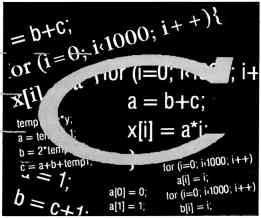You can download Latest C programming Interview Questions & answers pdf 2015 from here.
What is C language?
The C programming language is a standardized programming language developed in the early 1970s by Ken Thompson and Dennis Ritchie for use on the UNIX operating system. It has since spread to many other operating systems, and is one of the most widely used programming languages. C is prized for its efficiency, and is the most popular programming language for writing system software, though it is also used for writing applications. ...Who is the father of c?
Dennis RichiWhat is C Programing language?
Is C++ a superset of C? What are the differences between C and C++? Can I use a C++ compiler to compile C code?C++ was derived from C, and is largely based on it, but there are some legal C constructs which are not legal C++. Conversely, ANSI C inherited several features from C++, including prototypes and const, so neither language is really a subset or superset of the other; the two also define the meaning of some common constructs differently.
The most important feature of C++ not found in C is of course the extended structure known as a class which along with operator overloading makes object-oriented
programming convenient. There are several other differences and new features: variables may be declared anywhere in a block; const variables may be true compile-time constants; structure tags are implicitly typedeffed; an & in a parameter declaration requests pass by reference; and the new and delete operators, along with per-object constructors and destructors, simplify dynamic data structure management. There are a host of mechanisms tied up with classes and object-oriented programming: inheritance, friends, virtual functions, templates, etc. (This list of C++ features is not intended to be complete; C++ programmers will notice many omissions.)
How can I call FORTRAN?
How can I call FORTRAN (C++, BASIC, Pascal, Ada, LISP) functions from C? (And vice versa?)
The answer is entirely dependent on the machine and the specific calling sequences of the various compilers in use, and may not be possible at all. Read your compiler documentation very carefully; sometimes there is a ``mixed-language programming guide,'' although the techniques for passing arguments and ensuring correct run-time startup are often arcane. Besides arranging calling sequences correctly, you may also have to conspire between the various languages to get aggregate data structures declared compatibly.
In C++, a "C" modifier in an external function declaration indicates that the function is to be called using C calling conventions. In Ada, you can use the Export and Convention pragmas, and types from the package Interfaces.C, to arrange for C-compatible calls, parameters, and data structures.
What is assert and when would I use it?
It is a macro, defined in <assert.h>, for testing ``assertions''. An assertion essentially documents an assumption being made by the programmer, an assumption which, if violated, would indicate a serious programming error. For example, a function which was supposed to be called with a non-null pointer could writeassert(p != NULL);
A failed assertion terminates the program. Assertions should not be used to catch expected errors, such as malloc or fopen failures.
Why doesnt C have nested functions?
It's not trivial to implement nested functions such that they have the proper access to local variables in the containing function(s), so they were deliberately left out of C as a simplification. (gcc does allow them, as an extension.) For many potential uses of nested functions (e.g. qsort comparison functions), an adequate if slightly cumbersome solution is to use an adjacent function with static declaration, communicating if necessary via a few static variables. (A cleaner solution, though unsupported by qsort, is to pass around a pointer to a structure containing the necessary context.)27 Jan 2013




Results for:
ReplyDeletec programming interview questions and answers pdf
c programming interview questions and answers
c programming interview questions
c programming interview questions and answers for freshers
c interview questions answers pdf
c interview questions